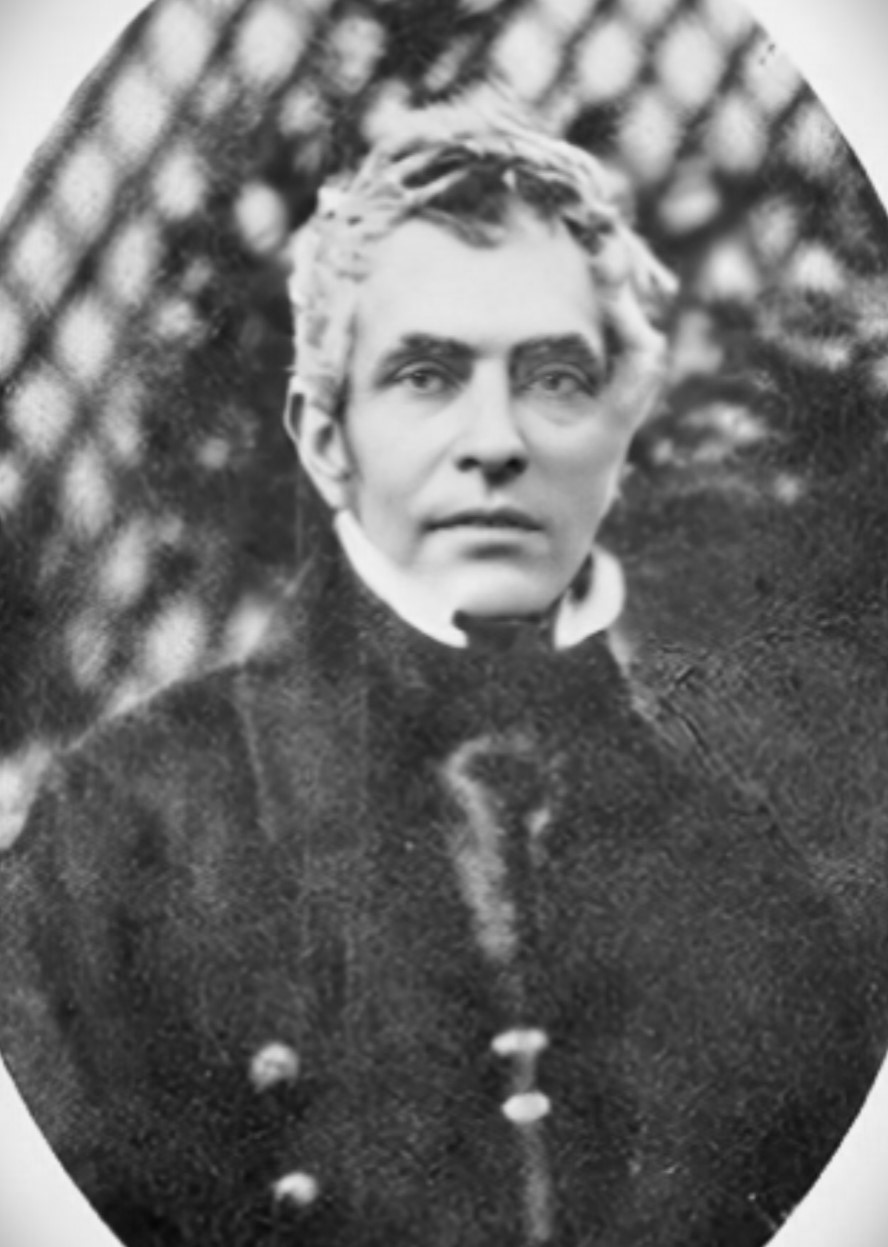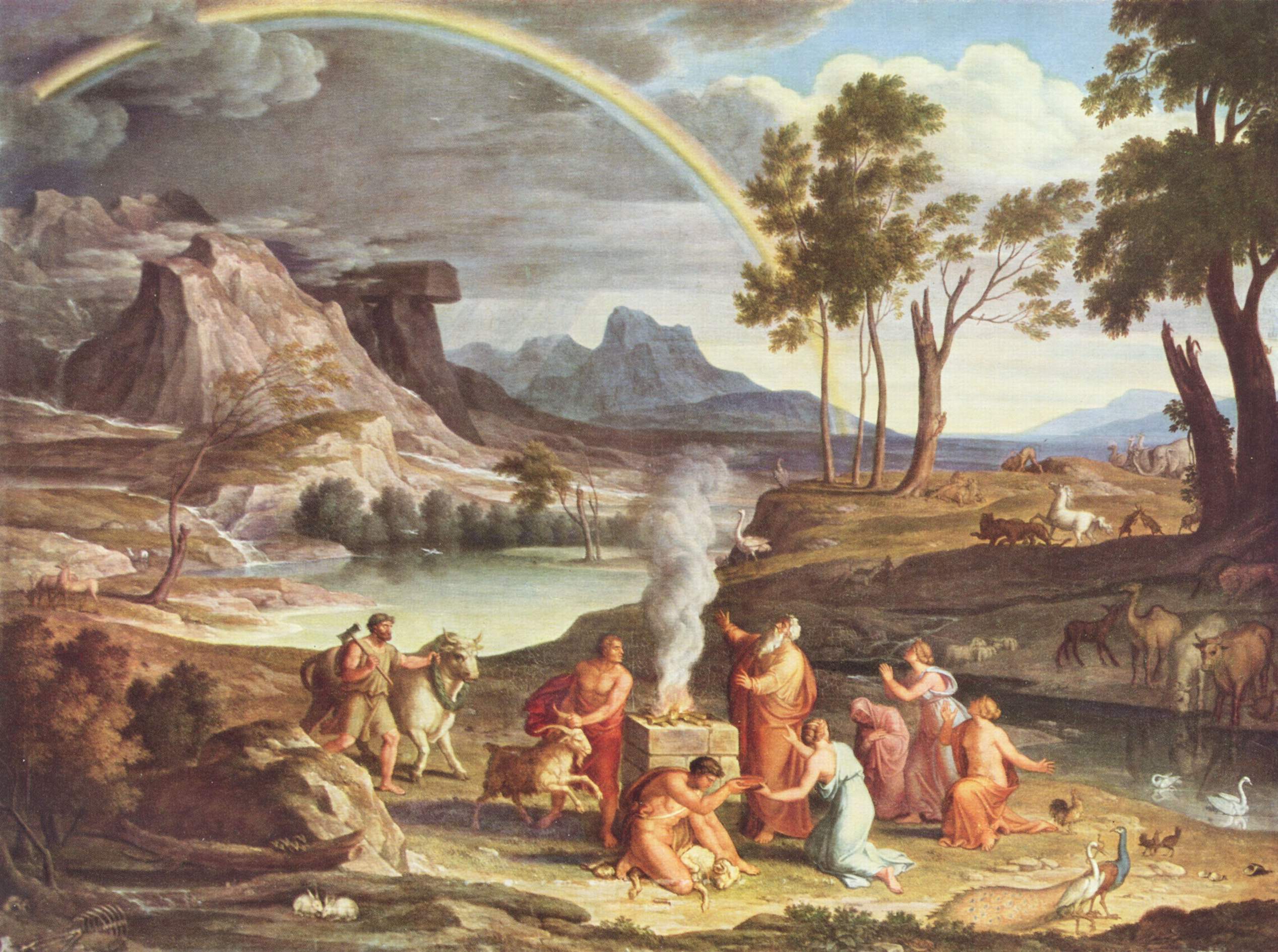|
Dispensationalism
Dispensationalism is a system that was formalized in its entirety by John Nelson Darby. Dispensationalism maintains that history is divided into multiple ages or "dispensations" in which God acts with humanity in different ways. Dispensationalists generally maintain a belief in premillennialism, a future restoration of Israel and in a rapture that will happen before the second coming, generally seen as happening before the tribulation. Theology Progressive revelation Progressive revelation is the doctrine in some forms of Christianity that each successive book of the Bible provides further revelation of God and his program. For instance, the theologian Charles Hodge wrote: The New Testament writings, then, contain additional information regarding God and his program beyond the writings of the Old Testament. Disagreement exists between covenant theology and dispensationalism regarding the meaning of revelation. Covenant theology views the New Testament as the key to interpret ... [...More Info...] [...Related Items...] OR: [Wikipedia] [Google] [Baidu] |
Hyperdispensationalism
Hyperdispensationalism, Mid-Acts Dispensationalism or Bullingerism (to which ultradispensationalism properly applies) is a Protestant conservative evangelical movement that values biblical inerrancy and a literal hermeneutic. Opponents of hyperdispensationalism are traditional dispensationalists, like John Walvoord and Charles Ryrie, classic Acts 2 Pauline dispensationalists, and ultradispensationalists. Within the United States, some advocates of hyperdispensationalism refer to themselves as members of the Grace Movement and they reject the prefix "hyper" or "ultra" as pejorative or misinforming. Many affiliate with the Grace Gospel Fellowship, a church association, and its Grace Christian University or the more conservative Berean Bible Society. General views Hyperdispensationalism holds that the early Christian Church lost four basic truths starting near the end of the Apostle Paul’s ministry. The four truths are (in order of loss): # The Distinctive Message and Ministry ... [...More Info...] [...Related Items...] OR: [Wikipedia] [Google] [Baidu] |
Progressive Dispensationalism
In Evangelical Christian theology, progressive dispensationalism is a variation of traditional dispensationalism. All dispensationalists view the dispensations as chronologically successive. Progressive dispensationalists, in addition to viewing the dispensations as chronologically successive, also view the dispensations as progressive stages in salvation history. The term "progressive" comes from the concept of an interrelationship or progression between the dispensations. Progressive dispensationalism is not related to any social or political use of the term progressive, such as progressive Christianity. Development While elements of progressive dispensational views were present in earlier dispensational writers, including Scofield and Eric Sauer, the view itself coalesced around specific issues and questions raised in the 1980s. Numerous dispensational scholars came to a rough consensus and in the early 1990s produced three main books articulating progressive dispensationa ... [...More Info...] [...Related Items...] OR: [Wikipedia] [Google] [Baidu] |
Premillennialism
Premillennialism, in Christian eschatology, is the belief that Jesus will physically return to the Earth (the Second Coming) before the Millennialism#Christianity, Millennium, a literal thousand-year golden age of peace. Premillennialism is based upon a Biblical literalism, literal interpretation of in the New Testament, which describes Jesus's reign in a period of a thousand years. Denominations such as Oriental Orthodoxy, Eastern Orthodoxy, Catholicism, Anglicanism, Presbyterianism and Lutheranism are generally Amillennialism, amillennial and interpret as pertaining to the present time, a belief that Christ currently reigns in Heaven (Christianity), Heaven with the departed saints; such an interpretation views the symbolism of Revelation as referring to a spiritual conflict between Heaven and Christian views on Hell, Hell rather than a physical conflict on Earth. Amillennialists do not view the millennium mentioned in Revelation as pertaining to a literal thousand years, but ... [...More Info...] [...Related Items...] OR: [Wikipedia] [Google] [Baidu] |
Rapture
The rapture is an Christian eschatology, eschatological position held by some Christians, particularly those of American evangelicalism, consisting of an Eschatology, end-time event when all Christian believers who are alive, along with resurrected believers, will rise "in the clouds, to meet the Lord in the air." The origin of the term extends from Paul the Apostle's First Epistle to the Thessalonians in the Bible, in which he uses the Greek word ( grc, ἁρπάζω), meaning "to snatch away" or "to seize," and explains that believers in Jesus in Christianity, Jesus Christ would be snatched away from earth into the air. The idea of a rapture as it is currently defined is not found in historic Christianity, and is a relatively recent doctrine. The term is used frequently among fundamentalist theologians in the United States. ''Rapture'' has also been used for a mystical union with God or for eternal life in Heaven. This view of eschatology is referred to as Premillennialism, ... [...More Info...] [...Related Items...] OR: [Wikipedia] [Google] [Baidu] |
John Nelson Darby
John Nelson Darby (18 November 1800 – 29 April 1882) was an Anglo-Irish Bible teacher, one of the influential figures among the original Plymouth Brethren and the founder of the Exclusive Brethren. He is considered to be the father of modern Dispensationalism and Futurism (Christianity), Futurism. Pre-tribulation rapture theology was popularized extensively in the 1830s by John Nelson Darby and the Plymouth Brethren, and further popularized in the United States in the early 20th century by the wide circulation of the Scofield Reference Bible. He produced translations of the Bible in German "Elberfelder Bibel", French "Pau" Bible, Dutch New Testament, and English (finished posthumously) based on the Hebrew and Greek texts called ''Darby Bible, The Holy Scriptures: A New Translation from the Original Languages by J. N. Darby''. It has furthermore been translated into other languages in whole or part. Biography Early years John Nelson Darby was born in City of Westminster, Westm ... [...More Info...] [...Related Items...] OR: [Wikipedia] [Google] [Baidu] |
Covenant Theology
Covenant theology (also known as covenantalism, federal theology, or federalism) is a conceptual overview and interpretive framework for understanding the overall structure of the Bible. It uses the theological concept of a covenant as an organizing principle for Christian theology. The standard form of covenant theology views the history of God's dealings with mankind, from Creation to Fall to Redemption to Consummation, under the framework of three overarching theological covenants: those of redemption, of works, and of grace. Covenentalists call these three covenants "theological" because, though not explicitly presented as such in the Bible, they are thought of as theologically implicit, describing and summarizing a wealth of scriptural data. Historical Reformed systems of thought treat classical covenant theology not merely as a point of doctrine or as a central dogma, but as the structure by which the biblical text organizes itself. The most well-known form of Covenant ... [...More Info...] [...Related Items...] OR: [Wikipedia] [Google] [Baidu] |
Biblical Covenant
The Hebrew Bible makes reference to a number of covenants ( he, בְּרִיתוֹת) with God (YHWH). These include the Noahic Covenant (in Genesis), which is between God and all living creatures, as well as a number of more specific covenants with Abraham, the whole Israelite people, the Israelite priesthood, and the Davidic lineage of kings. In form and terminology, these covenants echo the kinds of treaty agreements in the surrounding ancient world. The Book of Jeremiah, verses says that Yahweh will establish a new covenant with the house of Israel and the house of Judah. Most Christians believe this New Covenant is the "replacement" or "final fulfilment" of the Old Covenant described in the Old Testament and as applying to the People of God, while some believe both covenants are still applicable in a dual covenant theology. Ancient Near Eastern treaties The Hebrew term בְּרִית ''bĕriyth'' for "covenant" is from a root with the sense of "cutting", because p ... [...More Info...] [...Related Items...] OR: [Wikipedia] [Google] [Baidu] |
Messiah
In Abrahamic religions, a messiah or messias (; , ; , ; ) is a saviour or liberator of a group of people. The concepts of ''mashiach'', messianism, and of a Messianic Age originated in Judaism, and in the Hebrew Bible, in which a ''mashiach'' is a king or High Priest traditionally anointed with holy anointing oil. Χριστός, Greek for the Hebrew Messiah occurs 41 times in the LXX and the Hebrew Bible. ''Ha-mashiach'' (), often referred to as ' (), is to be a Jewish leader, physically descended from the paternal Davidic line through King David and King Solomon. He is thought to accomplish predetermined things in a future arrival, including the unification of the tribes of Israel, the gathering of all Jews to ''Eretz Israel'', the rebuilding of the Temple in Jerusalem, the ushering in of a Messianic Age of global universal peace, and the annunciation of the world to come. The Greek translation of Messiah is ''Khristós'' (), anglicized as ''Christ''. Christians commonly ... [...More Info...] [...Related Items...] OR: [Wikipedia] [Google] [Baidu] |
James, Brother Of Jesus
James the Just, or a variation of James, brother of the Lord ( la, Iacobus from he, יעקב, and grc-gre, Ἰάκωβος, , can also be Anglicized as "Jacob"), was "a brother of Jesus", according to the New Testament. He was an early leader of the Jerusalem Church of the Apostolic Age. Traditionally, it is believed he was martyred in AD 62 or 69 by being stoned to death by the Pharisees on order of High Priest Ananus ben Ananus. Catholics and Eastern Orthodox Christians teach that James, along with others named in the New Testament as "brothers" of Jesus, were not the biological children of Mary, mother of Jesus, but were possibly cousins of Jesus, or step-brothers from a previous marriage of Joseph (as related in the Gospel of James). The Catholic tradition holds that this James is to be identified with James, son of Alphaeus, and James the Less. It is agreed by most that he should not be confused with James, son of Zebedee also known as James the Great. Epithet Eusebi ... [...More Info...] [...Related Items...] OR: [Wikipedia] [Google] [Baidu] |
Saint Peter
Saint Peter; he, שמעון בר יונה, Šimʿōn bar Yōnāh; ar, سِمعَان بُطرُس, translit=Simʿa̅n Buṭrus; grc-gre, Πέτρος, Petros; cop, Ⲡⲉⲧⲣⲟⲥ, Petros; lat, Petrus; ar, شمعون الصفـا, Sham'un al-Safa, Simon the Pure.; tr, Aziz Petrus (died between AD 64 and 68), also known as Peter the Apostle, Peter the Rock, Simon Peter, Simeon, Simon, or Cephas, was one of the Twelve Apostles of Jesus Christ, and one of the first leaders of the Jewish Christian#Jerusalem ekklēsia, early Christian Church. He is traditionally counted as the first bishop of Romeor List of popes, popeand also as the first bishop of Antioch. Based on contemporary historical data, his papacy is estimated to have spanned from AD 30 to his death, which would make him the longest-reigning pope, at anywhere from 34 to 38 years; however, the length of his reign has never been verified. According to Apostolic Age, Christian tradition, Peter was crucified in Rome und ... [...More Info...] [...Related Items...] OR: [Wikipedia] [Google] [Baidu] |
Paul The Apostle
Paul; grc, Παῦλος, translit=Paulos; cop, ⲡⲁⲩⲗⲟⲥ; hbo, פאולוס השליח (previously called Saul of Tarsus;; ar, بولس الطرسوسي; grc, Σαῦλος Ταρσεύς, Saũlos Tarseús; tr, Tarsuslu Pavlus; la, Paulus Tarsensis AD), commonly known as Paul the Apostle and Saint Paul, was a Christian apostle who spread the teachings of Jesus in the first-century world. Generally regarded as one of the most important figures of the Apostolic Age, he founded several Christian communities in Asia Minor and Europe from the mid-40s to the mid-50s AD. According to the New Testament book Acts of the Apostles, Paul was a Pharisee. He participated in the persecution of early disciples of Jesus, possibly Hellenised diaspora Jews converted to Christianity, in the area of Jerusalem, prior to his conversion. Some time after having approved of the execution of Stephen, Paul was traveling on the road to Damascus so that he might find any Christians ... [...More Info...] [...Related Items...] OR: [Wikipedia] [Google] [Baidu] |






.jpg)
.jpg)